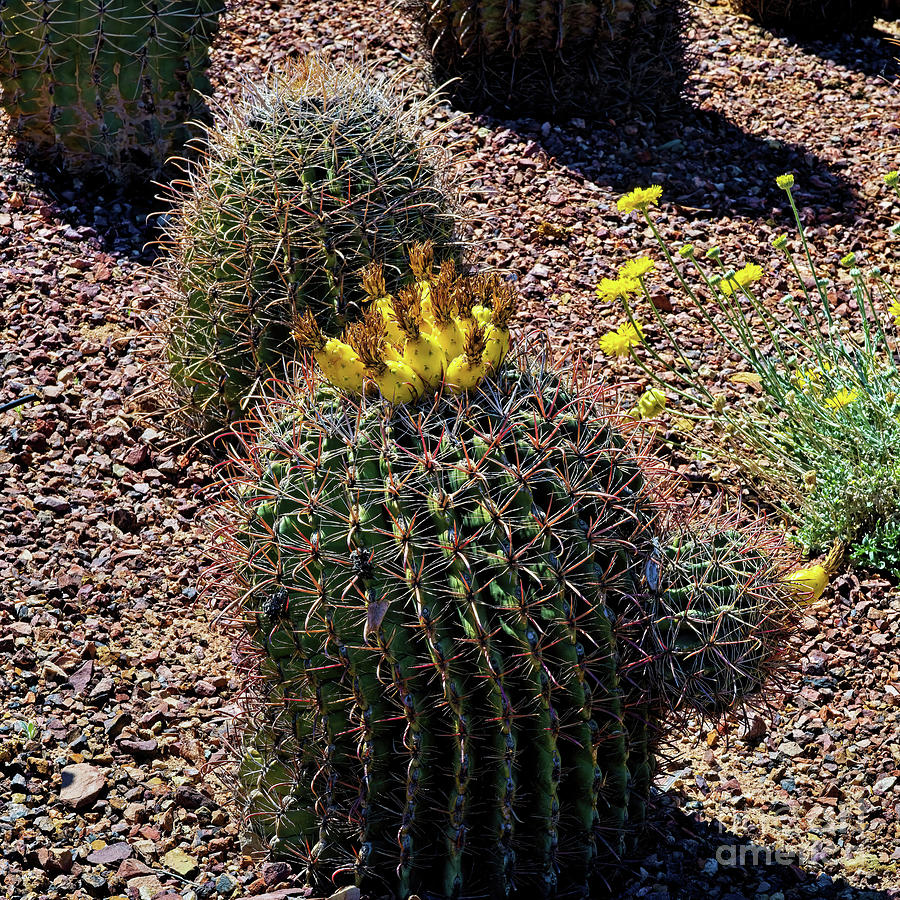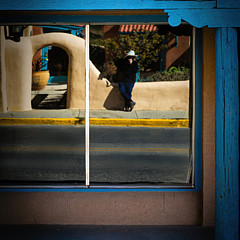
Golden Barrel

by Jon Burch Photography
Title
Golden Barrel
Artist
Jon Burch Photography
Medium
Photograph - Digital Capture
Description
The Desert Botanical Garden is a 140 acres botanical garden located at 1201 N. Galvin Parkway in Phoenix, Arizona. Founded by the Arizona Cactus and Native Flora Society in 1937 and established at this site in 1939, the garden now has more than 21,000 plants, in more than 4000 taxa, one-third of which are native to the area, including 139 species which are rare, threatened or endangered. Of special note are the rich collections of agave and cacti (10,350 plants in 1,350 taxa or group of one or more populations of organisms, which a taxonomist adjudges to be a unit), especially the Opuntia sub-family. Plants from less extreme climate conditions are protected under shade houses. It focuses on plants adapted to desert conditions, including an Australian collection, a Baja California collection and a South American collection. Several ecosystems are represented: a mesquite bosque, semidesert grassland, and upland chaparral. The Desert Botanical Garden has been designated as a Phoenix Point of Pride.
In the 1930s, a small group of local citizens became interested in conserving the fragile desert environment. One was Swedish botanist Gustaf Starck, who found like-minded residents by posting a sign, 'Save the desert,' with an arrow pointing to his home. In 1936, they formed the Arizona Cactus and Native Flora Society (ACNFS) to sponsor a botanical garden to encourage an understanding, appreciation and promotion of the uniqueness of the world's deserts, particularly the local Sonoran Desert.
Eventually Gertrude Webster, whose home encompassed all of what is today the neighborhood of Arcadia, joined the Society. She offered her encouragement, connections and financial support to establish the botanical garden in Papago Park.
She served as president of the Society's first Board of Directors and Gustaf Starck, W. E. Walker, Rell Hasket, L. L. Kreigbaum, and Samuel Wilson were the five vice presidents, with Wilson also serving as Treasurer and Paul G. Olsen as Secretary. In 1938, after much work by the ACNFS, the board hired the Garden's first executive director, George Lindsay, who oversaw the first planting on the grounds. The Desert Botanical Garden opened in 1939 as a non-profit museum dedicated to research, education, conservation and display of desert plants.
Volunteers were essential in the Garden's creation and development, when the staff was small and finances tight. These early supporters, including a few amateur botanists who donated their own plant collections, helped plan and execute plant sales, photography and art exhibits, and numerous public events.
Volunteers remain a Garden asset, sharing their time, talents and professional expertise. They work closely with staff to maintain the Garden's status as a premier plant research institution and serve as members of the Board of Trustees, setting policy and governing the Garden.
The Garden's commitment to the community is to advance excellence in education, research, exhibition and conservation of desert plants of the world with emphasis on the Southwestern United States, ensuring that the Garden will always be a compelling attraction that brings to life the many wonders of the desert.
The Garden's future plans to fulfill its mission are embodied in its vision statement:
"The Garden's vision is to be the premier center in the world for the display, study and understanding of desert plants and their environments. The Garden strives to be an indispensable resource in the Southwestern United States for helping individuals learn about Sonoran Desert Plants as well as desert plants of the world, so that they will conserve and protect the natural world for the benefit of future generations. Every element of the Garden will reflect excellence, beauty and inspiration to transform the visitor experience into one of discovery and meaning about deserts and desert plants."
Image copyright 2013 Jon Burch Photography
Uploaded
September 22nd, 2013
Statistics
Viewed 215 Times - Last Visitor from Ottawa, ON - Canada on 04/21/2024 at 3:47 PM
Embed
Share
Sales Sheet


























































